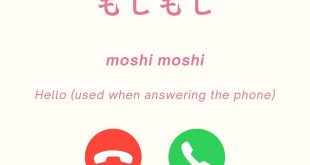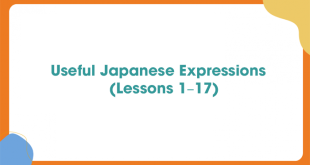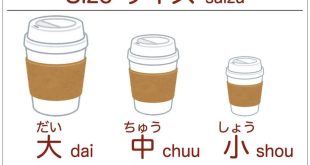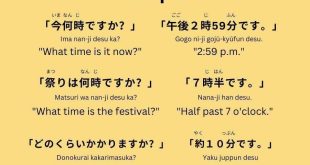How to say “I, You, He, She, They, We” in Japanese
Different Ways to Say “I” in Japanese
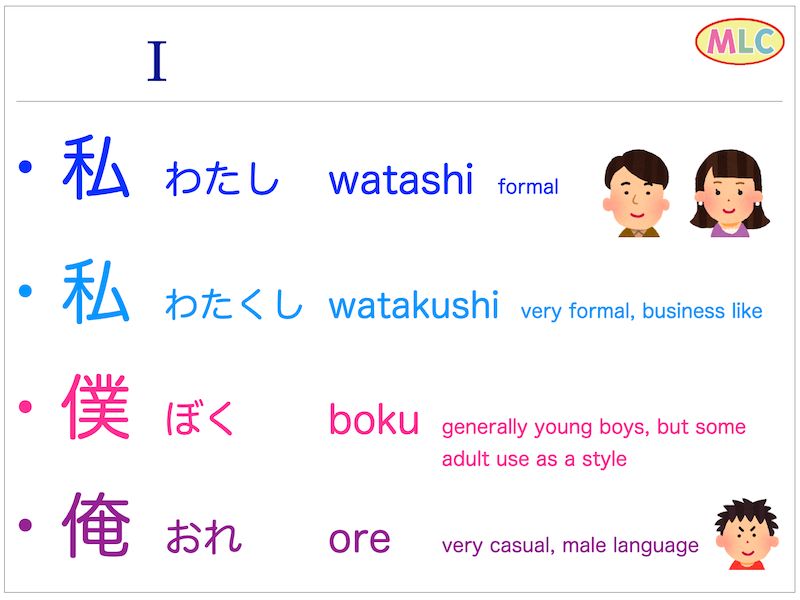
| Kanji | Hiragana | Romaji | Level / Who uses it | Meaning & Usage |
|---|---|---|---|---|
| 私 | わたし | watashi | Polite / Neutral | Used by both men and women in formal and casual settings. |
| 私 | わたくし | watakushi | Very formal | Used in business, interviews, or formal speeches. |
| 僕 | ぼく | boku | Casual–Polite (Male) | Common among boys and men; sounds gentle or humble. |
| 俺 | おれ | ore | Very casual (Male) | Informal; used by men with close friends or in relaxed settings. Not polite. |
Basic Japanese Pronouns
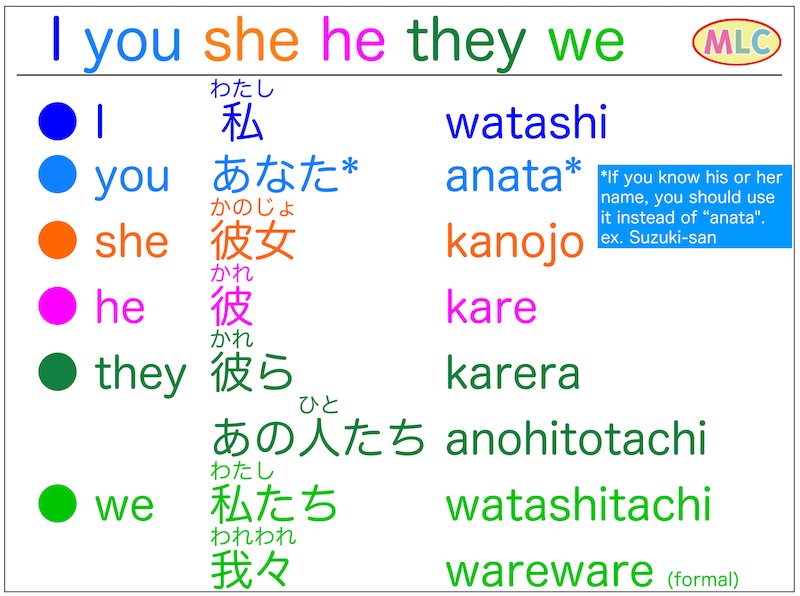
| English | Japanese (Kanji + Kana) | Romaji | Notes |
|---|---|---|---|
| I | 私(わたし) | watashi | “I / me.” Neutral and polite. Used by both men and women. |
| you | あなた | anata | “You.” Polite but not used often — in Japanese, it’s better to use the person’s name + さん (-san) instead. |
| she | 彼女(かのじょ) | kanojo | “She / her.” |
| he | 彼(かれ) | kare | “He / him.” |
| they | 彼ら(かれら) | karera | “They.” Usually refers to a group of males or mixed genders. |
| they | あの人たち(あのひとたち) | anohitotachi | “Those people / they.” A neutral and polite alternative to “karera.” |
| we | 私たち(わたしたち) | watashitachi | “We / us.” Common and polite. |
| we (formal) | 我々(われわれ) | wareware | “We” in a formal, business, or official speech style. |
Related Post:
Personal pronouns and demonstrative pronouns in Japanese
Japanese conjunction you should know
 Learn Japanese
Learn Japanese

